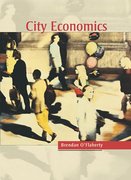After 9/11, Lower Manhattan became a less desirable place to work and to live. Many people had
Question:
After 9/11, Lower Manhattan became a less desirable place to work and to live. Many people had traumatic memories, services and subways were severely disrupted, and serious questions lingered about environmental pollution from the World Trade Center’s collapse. Some law firms and financial services businesses moved to Midtown, Manhattan’s other and larger central business district, or to Jersey City, directly across the river.
In response to this situation, a large portion of the $20 billion that the federal government pledged to help New York recover from 9/11 has gone into subsidies designed to induce firms and residents to stay in Lower Manhattan. Business tenants who stay in Lower Manhattan get money from the federal government if they stay long enough. Office rents are not regulated in New York City, and competition among building owners is fierce.
Lower Manhattan is a small part of a large metropolitan office market.
a. Relative to the situation in which no subsidies were available, what happens to equilibrium net rents that tenants pay in Lower Manhattan? (Net rent = rent actually paid minus subsidy received.)What happens to rents actually paid?
b. Who gains from the subsidy?
c. What’s the effect on the value of office buildings in Lower Manhattan?
d. Is this program an appropriate public policy response to the events of 9/11? Explain why or why not.
Step by Step Answer:







